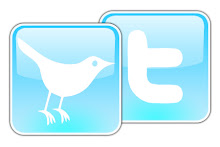Wednesday, October 12, 2011
A Prediction: What Platform Will Be Running on the Tablets in Your Classes?
by Shelly Blake-Plock
Windows.
That's my prediction. Here's my rationale: Windows 8 has been designed especially for touchscreen computing. Windows is the overwhelming winner in the enterprise market. Major PC manufacturers from HP to Dell are re-evaluating their business in a post-iPad world. In the short term, no PC company is going to catch up to the iPad. And the Kindle Fire will soak up much of the remaining consumer market for folks who just want to watch movies and read books on a tablet.
While Android phones will continue to gain market share -- though with a $99 iPhone 3S floating around, it will be interesting to watch what happens -- Android tablets will get squeezed out by Apple and Amazon on the consumer side and by Windows tablets in business. Windows is what business trusts and Windows will be what business goes to as tablet computing hits the workplace in a big way. Watch for a company like Nvidia to monopolize the need for increased graphics capability on tablets and watch the usual suspects -- HP, Sony, Dell, Lenovo, Asus -- all come out with Windows-based tablets.
My guess is that this will all burst on to the scene in a big way for the post-election holiday season of 2012. We'll likely see the big commercial blitz over the summer to coordinate with television advertising for the candidates and on the Internet streams of political shows on MSNBC, Fox, and the like.
And then you'll start seeing them in schools. Because high schools -- high schools are likely where the majority of 1:1 tablets will come in because of online AUP/TOS policies regarding younger kids -- will do as they have traditionally tried to do and follow the lead of business and higher ed when it comes to tech buying decisions.
And so, starting in 2013, we'll see the first wave of Windows tablets entering classrooms. That momentum will build as the price of productivity-oriented Windows tablets comes down and the need for 1:1 connectivity will become increasingly an infrastructure and instructional expectation (as well as a necessary way to deal with online textbooks in places like CA) -- starting in a big way in suburban public schools, but also building off early forays into mobile learning in urban and rural schools. Most private schools -- at least those with an eye to maintaining high college placement stats -- will make Windows tablets the standard 1:1 learning device / notebook / organizer in those settings.
By 2016 or so, Windows tablets will be the industry standard.
Of course, I could be totally wrong. This is just a prediction. And in many ways it's a ludicrous prediction, but I'm willing to put it out there.
Windows.
That's my prediction. Here's my rationale: Windows 8 has been designed especially for touchscreen computing. Windows is the overwhelming winner in the enterprise market. Major PC manufacturers from HP to Dell are re-evaluating their business in a post-iPad world. In the short term, no PC company is going to catch up to the iPad. And the Kindle Fire will soak up much of the remaining consumer market for folks who just want to watch movies and read books on a tablet.
While Android phones will continue to gain market share -- though with a $99 iPhone 3S floating around, it will be interesting to watch what happens -- Android tablets will get squeezed out by Apple and Amazon on the consumer side and by Windows tablets in business. Windows is what business trusts and Windows will be what business goes to as tablet computing hits the workplace in a big way. Watch for a company like Nvidia to monopolize the need for increased graphics capability on tablets and watch the usual suspects -- HP, Sony, Dell, Lenovo, Asus -- all come out with Windows-based tablets.
My guess is that this will all burst on to the scene in a big way for the post-election holiday season of 2012. We'll likely see the big commercial blitz over the summer to coordinate with television advertising for the candidates and on the Internet streams of political shows on MSNBC, Fox, and the like.
And then you'll start seeing them in schools. Because high schools -- high schools are likely where the majority of 1:1 tablets will come in because of online AUP/TOS policies regarding younger kids -- will do as they have traditionally tried to do and follow the lead of business and higher ed when it comes to tech buying decisions.
And so, starting in 2013, we'll see the first wave of Windows tablets entering classrooms. That momentum will build as the price of productivity-oriented Windows tablets comes down and the need for 1:1 connectivity will become increasingly an infrastructure and instructional expectation (as well as a necessary way to deal with online textbooks in places like CA) -- starting in a big way in suburban public schools, but also building off early forays into mobile learning in urban and rural schools. Most private schools -- at least those with an eye to maintaining high college placement stats -- will make Windows tablets the standard 1:1 learning device / notebook / organizer in those settings.
By 2016 or so, Windows tablets will be the industry standard.
Of course, I could be totally wrong. This is just a prediction. And in many ways it's a ludicrous prediction, but I'm willing to put it out there.
Subscribe to:
Post Comments (Atom)








I think you're selling Google short. I imagine that Google will slowly gain presence with Chromebooks and tablets. I wouldn't be shocked if the Kindle Fire and the next generation of Nooks both end up looking much like an Android tablet. By 2016, the distinction between a Chromebook and an Android tablet will be minimal and there will be tons of products around the $100 price range.
ReplyDeleteWindows 8 is well-developed, no doubt. But in the long-run, I'm betting on Google and the notion of a tablet being next-to-nothing in cost (essentially like buying paper). There's too much ad-revenue to be made in the process. As more and more companies shift to Google Apps and schools continue to be money-crunched, I see a "free" OS with "free" software dominating the educational tablet industry.
Perhaps Windows will come in an make a splash and good for them if they do. I'd love to see the competition drive down the prices. But I see them going the route of IBM and moving toward customized consulting and large-scale software projects.
Then again, I also think the 49ers will make it to the Super Bowl this year. So, I admit that my predictions are at best speculative and are heavily biased.
I was thinking about Google -- and the possibility of a Facebook tablet, as well. But I think one thing cheap tablets will bring with them is as you say: advertising; and -- particularly in schools and in businesses -- this is going to cause consternation.
ReplyDeleteWhat really has me leaning towards a Windows tablet is increased productivity mode. The Kindle Fire looks pretty cool considering what it's meant to do: sell you books and movies and provide a place to read and watch them; but I don't think Amazon has an intention of making a productivity device -- that doesn't really fit into their business plan. Windows, on the other hand, will sell itself as the tablet to do your word processing, spreadsheets, etc, etc stuff Windows has always done. It'll also run Photoshop... and...
Essentially what the Kindle Fire suggests is that there isn't going to be a single such thing known as a "tablet". Rather, there will be a tablet for books and magazines -- I sort of imagine these as cheap "public computers", the sort of thing that will replace the magazine rack at the dentist's office; and there will be home/school/business tablets of different costs and purposes. Maybe even high-end design tablets created by Apple or Adobe or someone else.
I'm with you on the value of speculative predictions...
Shelly
I see the Kindle Fire eventually allowing more user-oriented items. Allowing people to own the process will eventually lead to selling apps, content, etc. It would make sense, for example, that they would create a Kindle blogging app that would let one type blog posts, upload pictures, etc. with the eventual goal of selling the content via KDP. Similarly, I see Amazon using video recognition software to allow someone to take a snapshot of an item in the world and see how much it costs.
ReplyDeleteI know video capabilities, pictures, etc. seem far away from Amazon's business plan. However, the truth is that Apple and Amazon are both making a ton of money on selling content in all its multimedia formats. The Fire is much like the first-generation iPad or iPod Touch. The user-generated multimedia components will come with it soon, I'm sure.
Over time, Amazon will slowly become the Wal-Mart of tablets. Tech geeks will mock them, but the price will be low and mainstream America will buy the tablets up. (Which fits nicely into the idea of "cheap tablets" that are like magazines. My only departure is in the question of user-generated content. I see Amazon creating cheap iPads, essentially, and running tons of Android apps on them)
On the flip side, Google will potentially become very powerful if Android and Chrome eventually drive down the price of tablets and laptops. I see all Google Apps working seamlessly. And unlike other tech companies, Google already has an in-route through Apps for Education. They have the sex appeal of Apple minus the cost. True, there will be advertisements, but schools will quickly overlook that (just take a peak at the branding that's already going on in football fields across the country)
There will be little need for Google and Amazon to compete. Both use very different business models. I see the end result, though, being that Apple takes the mantle with specialty uses - design, graphics, higher-end users, etc. Meanwhile, the Fire and Google-based tablets, will become popular among the masses.
The end result is that the idea of an OS will continue to get confusing in an era of connectivity.
It is what happened in the pc world. Gates is just smarter than Jobs and not nearly as arrogant.
ReplyDelete